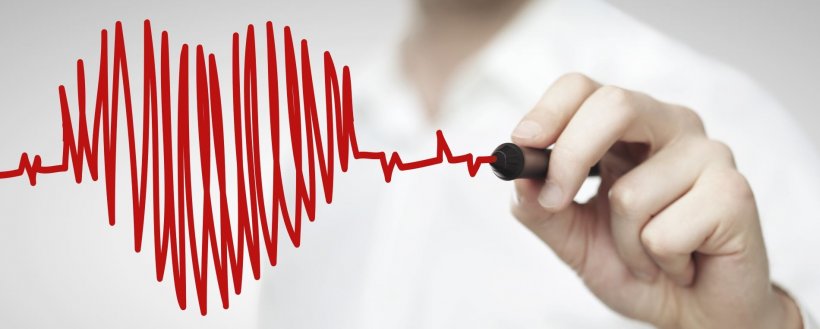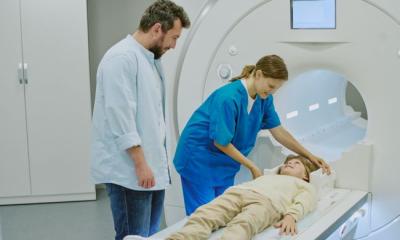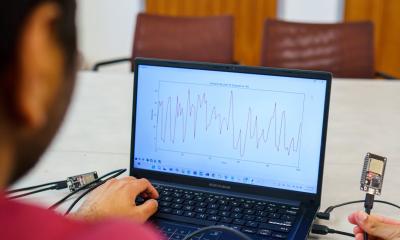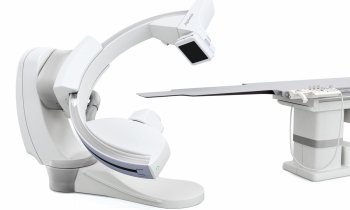
Image source: Shutterstock/Peshkova
News • Hyperventilation vs cardiac arrhythmia
Hold your breath – save your heart?
A technique that enables patients suffering from heart conditions to hold their breath safely for over 5 minutes could have potential as part of a new treatment for cardiac arrhythmias, say researchers at the University of Birmingham.
In a new study, published in Frontiers in Physiology, researchers initially proposed the technique as a new means for earlier diagnosis of ischaemic heart disease. The technique involves hyperventilating conscious, unmedicated patients using a mechanical ventilator which delivers air to the patient via a face mask. Hyperventilation causes hypocapnia that leads to temporary constriction in the coronary arteries. The researchers were initially exploring whether this effect could be exploited as an ‘early warning system’ to diagnose coronary heart disease.
The fact that patients with angina were able to tolerate mechanical hyperventilation so well confirms its potential to improve the newly emerging procedure of using radiotherapy for cardiac ablation
Michael Parkes
Although more work needs to be done on its diagnostic potential, the research was able to confirm that mechanical hyperventilation and hypocapnia were well tolerated and safe for patients with angina. The team believe this paves the way to induce breath-holds of over five minutes to support an emerging new technique in which radiotherapy, instead of radiofrequency or freezing, is used for cardiac ablation.
In this procedure, patients with arrhythmias undergo precisely targeted radiotherapy, applied from outside the chest, to destroy tissue that is allowing incorrect electrical signals to cause an abnormal heart rhythm. Breathing is a problem because each breath causes the heart to move within the chest.
Lead author Dr Michael Parkes, of the University’s School of Sport, Exercise and Rehabilitation Sciences, explained: “There is still little awareness of the simplicity, availability, and safety of non-invasive mechanical hyperventilation. We have already shown that patients with breast cancer can breath-hold safely for over 5 minutes using this technique. The fact that patients with angina were able to tolerate mechanical hyperventilation so well confirms its potential to improve the newly emerging procedure of using radiotherapy for cardiac ablation. Stopping breathing with a safe breath-hold of over 5 minutes, using mechanically induced hypocapnia and now with oxygen enriched air, could allow surgeons to target the radiotherapy for cardiac ablation much more precisely. The advantage of radiotherapy over radiofrequency or freezing is that radiotherapy is completely non-invasive and is applied from outside the chest. Whereas the other techniques require a catheter, passed via a vein in the groin or artery in the neck, to be placed inside the atria in the heart. Currently such radiotherapy is being considered only when all other ablation and pharmacological techniques have failed.”
The next step is to test this technique in patients with cardiac arrhythmias to see if they too can hold their breath long enough to apply the radiotherapy.
Source: University of Birmingham
20.01.2020











